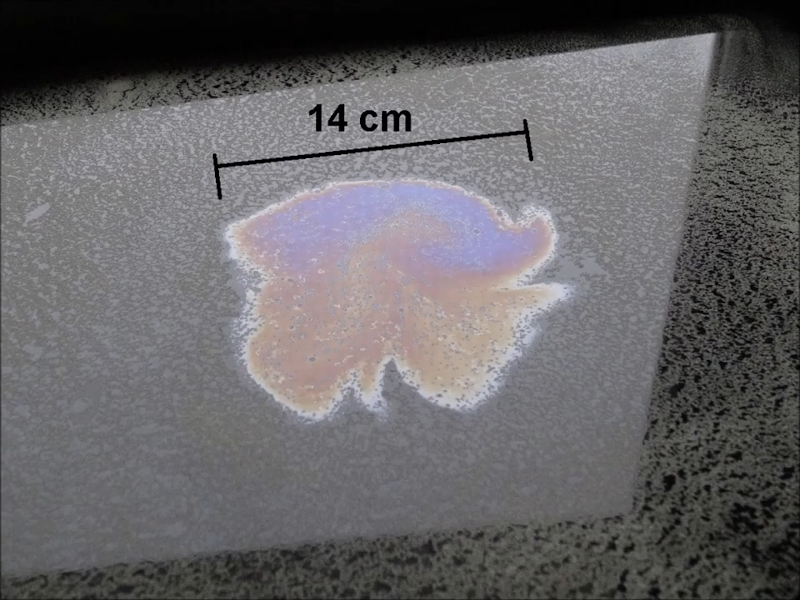
Do you need a well-equipped lab to measure the size of an atom (German, machine translation)? According to [stoppi], no. You need sunflower oil, some bear moss spores, and a bit of gasoline. You’ll also need some common things like a syringe, a baking sheet, and a jar. You can see the whole process in the video below. The measurement isn’t really for a specific atom, but it is an average for a lipid molecule, which is still impressive.
You essentially measure the diameter of an oil drop spread over water. Since the oil is mostly oleic acid, the height of the layer is known as 167 atoms. After that, it is some simple measurements and math to get the height and find the average atom height.
The measurement relies on the fact that oleic acid is a lipid and is part hydrophobic and part hydrophilic. This means that when an oleic acid molecule hits water, it stands in a particular orientation. A drop of oil will spread to a single molecular thickness. If you know the volume of oil you introduced, you can mathematically deduce the height of the spread out oil drop by considering that the volume of the disk must be the same as the volume you started with.
While your mileage may vary, [stoppi] got 1.76 angstroms by taking the height of the film and dividing by the number of atoms in the film. That’s 176 picometers per atom. If you can’t find spores, talcum powder is known to also work in this application and you can use alcohol instead of gasoline, too. You might find it handy to put the powder in a salt shaker to distribute it. You’ll want to tap the tray to make sure the oil drop spreads as far as possible. It is also a good idea to take an average diameter measurement since your oil drop is likely not going to be perfectly circular.
The process isn’t new. In 1932, [Irving Langmuir] picked up a Nobel prize for work that included this method. If you’d rather see your molecules, try 3D printing. If you are a fan of measuring the physical universe, why not try finding the speed of light?
No comments:
Post a Comment